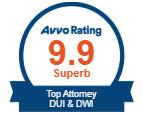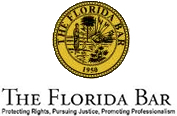Criminal Defense
I have been representing people in the criminal justice system since 1995. I was a prosecutor with the State Attorney’s Office from 1995 to 1998 and handled cases ranging from “DUI” and “Misdemeanor Battery” to “Home Invasion Robbery”, “Sexual Battery”, and “1st Degree Murder.” Since 1998, I have been representing people who have been accused of criminal offenses in the state of Florida.
Perhaps in no other area of law is it more important to have an experienced and talented trial attorney than in a criminal defense setting. The right attorney should be experienced and respected so that he can advance the client’s interests and shield him or her from public embarrassment and defend the client from a criminal conviction and possible incarceration. In some situations that could mean speaking with law enforcement and the Prosecutor to explain why charges are not warranted. In other cases that could mean standing in Court with the client during jury trial, questioning witnesses, arguing suppression motions or explaining to a jury why the client is “Not Guilty” of the crime charged. No matter the specifics of the case, the choice the criminally accused makes for his or her attorney can be the biggest factor in determining the outcome of the case.
Criminal charges in the state of Florida are classified as either a “Felony” or a “Misdemeanor.” “Felony” offenses are more serious with punishments much more severe than those for “Misdemeanor” offenses.
Felony Offenses
“Felony” offenses are categorized in the following ways: “Capital Felony”, “Life Felony”, “First Degree Felony”, “Second Degree Felony”, and “Third Degree Felony.” Each felony category has a different maximum potential sentence. The chart below describes the different potential sentences for each.
Along with or as an alternative to the above sentences, Judges are permitted to sentence an individual to a period of “probation” and/or “house arrest.”
It is important to remember that a “felony conviction” will have a major impact on one’s personal life and professional standing. The conviction will appear in virtually any “background check” and be a “red flag” for any job, school, and employment application. A convicted felon also loses his or her right to vote, ability to sit on a jury, and the right to own, use, or posses a firearm. A “felony conviction” will also make it difficult, if not possible, to pursue a career in medicine, nursing, insurance, financial services, and the practice of law.
Every person facing a “felony charge” is subject to the “Florida Sentencing Guidelines” and the “Criminal Punishment Code”, found in Chapter 921, Florida Statutes which determine a “legal” sentencing range for anyone charged with a felony. Determining the sentencing range is based on calculating a numeric “score” and is based on many different factors specific to the person charged and the “felony” charge he or she is facing. Each factor is given a different “point” value by the Florida Legislature. A mathematical formula is used to compute the point total to arrive at a sentencing range specified by the Guidelines.
Some of the basic factors that are taken into account include:
Misdemeanor Offenses
A “Misdemeanor Offense” is categorized as either a “First Degree Misdemeanor” or a “Second Degree Misdemeanor” with the following maximum potential sentences:
As with a “felony” charge, a “misdemeanor” sentence can also include probation and/or house arrest in addition to the penalties indicated above.
“Misdemeanor” convictions can not result in a Florida State Prison sentence. However, a “misdemeanor” conviction will appear in most, if not all, background checks and can be a factor that influences an employer’s hiring decision or an educational institution’s admissions determinations.
Certain “misdemeanor” convictions can result in a suspension of your driving privileges. Examples include convictions for “Possession Marijuana”, “Solicitation for Prostitution”, and “Driving Under the Influence.”
Each situation and charge is different and carries its own penalties. Regardless of the specifics of your case every person needs talented and experienced representation to make sure that his or her situation is handled appropriately to reach the best possible outcome for the client.






